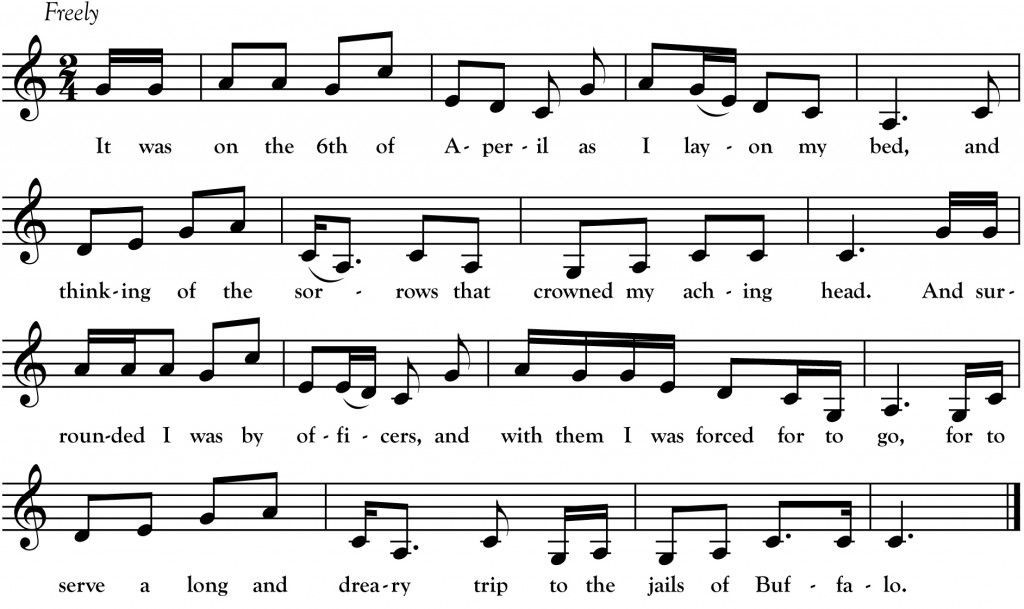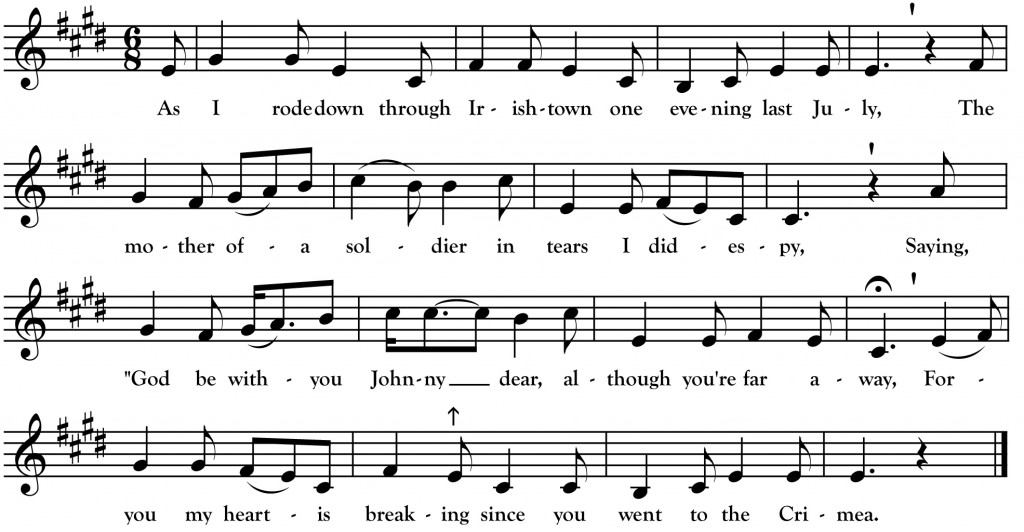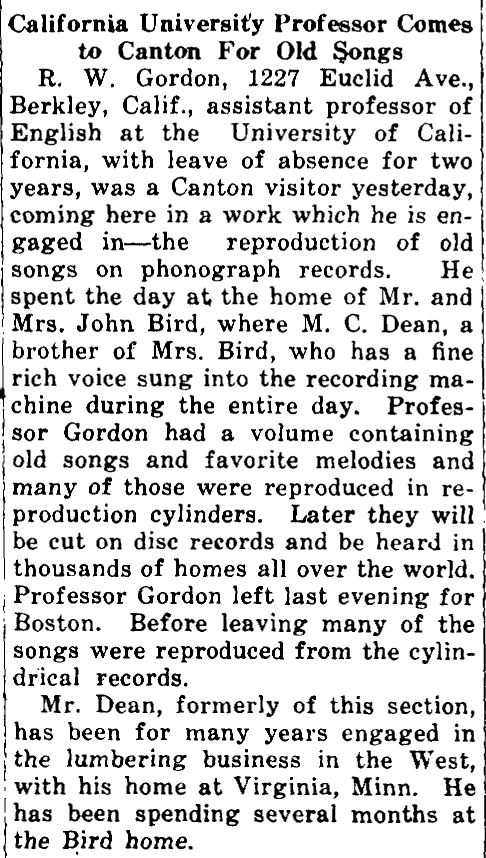The Smugglers of Buffalo
It was the 6th of Aperil as I lay on my bed,
And thinking of the sorrows that crowned my aching head.
And surrounded I was by officers, and with them I was forced for to go,
For to serve a long and dreary trip to the jails of Buffalo
Then I’ve done my task and got pardoned and once more I am free
And I went down to Sandusky my true love for to see.
But perhaps, my boys, she will give me the bounce when she does a-come to know
That I led a gang of smugglers to the jails of Buffalo.
Oh this girl she came from Patterson, the truth to you I will tell
She was an only daughter and her parents loved her well
They brought her up in the fear of the Lord but little did she know
That she was married to a smuggler who served time in Buffalo
__________________________________________________________
This month we step away from the songs of Irish-Minnesotan Mike Dean for a visit to one of the most fascinating (and musical) Irish settlements in the Great Lakes region: Beaver Island, Michigan. Situated in the center of the northern end of Lake Michigan, Beaver Island’s stranger-than-fiction history is far too colorful to fully convey in this space. In 1851 it was taken over by self-proclaimed Mormon king James Strang and his followers. In 1856 Strang was assassinated (by Mormons on the island) and a group of Irish fishermen, primarily from County Donegal, quickly drove the remaining Latter Day Saints off the island and established a tight-knit community whose isolation made it one of the last great rural strongholds of Irish folk culture in North America.
I transcribed the above song from a field recording made of Beaver Island singer John W. Green (1871-1964) in 1938 by Ivan Walton and Alan Lomax. John W. Green’s parents were Daniel “White Dan” Green and Bridget O’Donnell, both born on the island of Arranmore, County Donegal. Like many Island men of his generation, John Green was a fisherman by summer and a lumberman by winter who knew well over 100 songs, many learned from his musical family members.
Green was frustrated at the time of the recording that he could only recall three verses to “The Smugglers of Buffalo.” He does not say, on the recording, what contraband might have been smuggled in the song but the fact that the singer’s head is aching might give some indication!
References:
Biographical History of Northern Michigan, 1905.
“Detnews.com | Michigan History.” Accessed March 20, 2013.
“RootsWeb: IRL-ARRANMORE-L [IRL-ARRANMORE-L] Aran/Beaver Is Green.” Accessed March 20, 2013.
Walton, Ivan H, with Joe Grimm; illustrated by Loudon G. Wilson; musical scores by Lee Murdock. Windjammers : Songs of the Great Lakes Sailors. Detroit, MI: Wayne State University Press, 2002.



